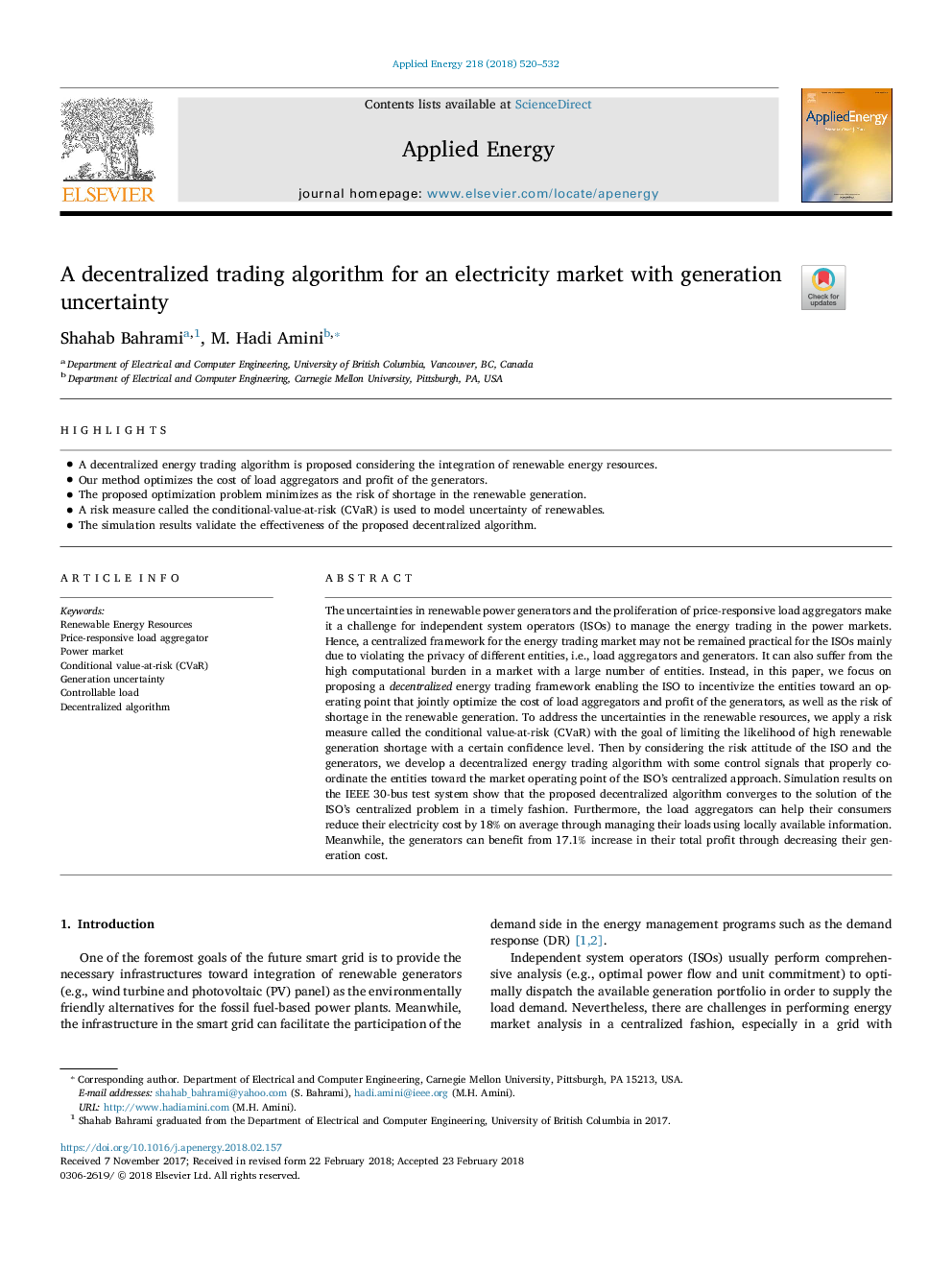ترجمه فارسی عنوان مقاله
یک الگوریتم تجاری غیر متمرکز برای یک بازار برق با عدم قطعیت تولید
عنوان انگلیسی
A decentralized trading algorithm for an electricity market with generation uncertainty
| کد مقاله | سال انتشار | تعداد صفحات مقاله انگلیسی |
|---|---|---|
| 139806 | 2018 | 13 صفحه PDF |
منبع

Publisher : Elsevier - Science Direct (الزویر - ساینس دایرکت)
Journal : Applied Energy, Volume 218, 15 May 2018, Pages 520-532

